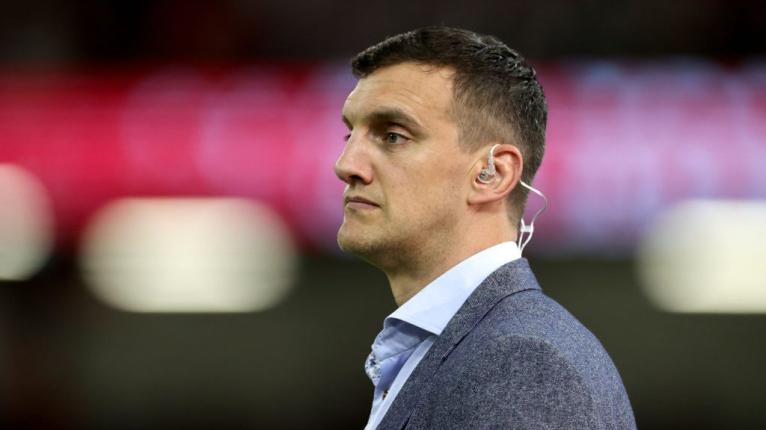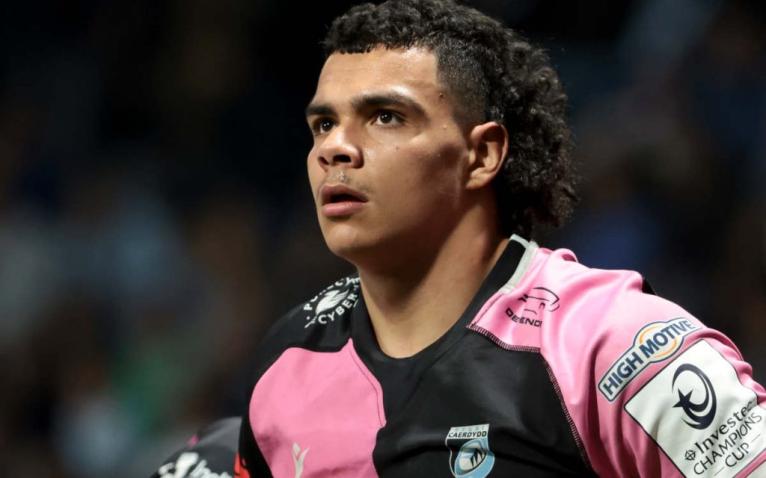It’s a long time since the Valleys weights room scene with two leading Welsh rugby players training flat-out when the door creaked open and in walked a man who looked very much at the start of his muscle-building journey.
The then Wales back-rower Mark Davies and his mate, John Thomas, who won Wales B honours and can be counted among the unluckiest not to win a senior cap, were bench pressing close on the entire gym as the 9st newcomer looked around in the company of the attendant overseeing his induction.
Patience did not seem an obvious trait of the latest addition to the iron-pumping fraternity as he listed what he wanted from his gym experience. His eyes alighting on the impressively conditioned Thomas, the man told the person showing him around: “I want one of those V-shaped backs.”

As if one could be snapped up via express delivery from Tesco. Good manners prevented the attendant from relating that such a request might take quite some time to satisfy.
The tale came to mind amid the lament Wales no longer produce enough players physically equipped for elite rugby in 2024.
How can we put this? Instant correction of the problem may not be on the agenda, a point Sam Warburton wisely hinted at after the recent clash with Australia when he noted it wasn’t possible to put on a stone of muscle in a week, while former Wales international and head of conditioning Mark Bennett similarly pointed to the core of the problem in an interview with WalesOnline.
“If I was going to identify somewhere which needs to improve dramatically it’s the system of developing young players. I watched our game against South Africa on TV and we looked under-powered and small,” he said.
It’s hard for Wales. They are not as big a side as South Africa, New Zealand or England, so it’s very hard for them to win collisions.
“Those physical abilities aren’t things that can be developed in a month or even one off-season. That’s a multi-year project.”
Sobering? Reality often is.
The Welsh Rugby Union are belatedly doing something worthwhile to remedy the situation, with the governing body set to create a group of young players between the ages of 15 and 24 to improve the depth of talent in Wales. Up to 60 players will be identified annually and receive an additional programme to accelerate their development.
All very welcome, but there’s a case for feeling such a development should have happened years ago, for the truth is size and power have long been in short supply in the Welsh game.
Rewind to 2019 and Paul O’Connell saying after the World Cup semi-final defeat by South Africa: “It’s hard for Wales. They are not as big a side as South Africa, New Zealand or England, so it’s very hard for them to win collisions.”
Soft hands, quick feet – Ioan Nicholas is across the line for @scarlets_rugby‘s second try of the night 🙌#BKTURC #URC | #GLAvSCA pic.twitter.com/xwTA6dYSkN
— BKT United Rugby Championship (URC) (@URCOfficial) November 29, 2024
Head further back through the decades and it has often been the same story. As the 1970s gave way to the 1980s, the talk in many rugby clubs was about the lack of big men to fill the Wales pack. The amiable 6ft 8ins London Welsh lock Chris Howcroft was mooted as a possible answer to the problem back then, while a few years later Neath’s Andrew Kembery was touted for honours because he was of similar height and bulk. For a variety of reasons neither played a full international. But the problem has pretty much always been there.
Invention, guile, skill and the sheer ability to find a way often got Wales through.
But – understatement alert – the class of ’24 didn’t exactly excel on all those fronts in the recent Autumn Nations Series, with their back play often predictable and lacking precision and pace. Every player fronted up against South Africa, tackling bravely, but the exercise was damage limitation for 80 minutes, with the Springboks too big and powerful, as well as too fast and skilful.
One stat showed Wales managed just 82m from their 62 carries, the fewest metres any Tier One nation has recorded in a Test since the analytics people at Opta started collecting such data.
Nor would performances in the latest round of United Rugby Championship matches have cheered Warren Gatland much. Missing Gareth Thomas, Dewi Lake, Adam Beard, Jac Morgan and plenty of others, the Ospreys were a shorn of much talent when they played Zebre in Parma, with poor ball retention, mediocre work at restarts and easy-to-read attacks undermining their effort. Harri Deaves showed up well, while Morgan Morris also grafted tirelessly, but Toby Booth’s side could have no complaints about their defeat by the competition’s perennial strugglers.
Gatland has handed out 25 debuts in 2024 but of the 13 forwards given first caps, only Mackenzie Martin can be properly classed as a serious ball-carrier. He finds himself languishing in Cardiff’s second team.
The Scarlets had a gilt-edged chance to claim victory against an understrength Glasgow but were unable to see the job through, notwithstanding strong efforts from Josh Macleod, Max Douglas and Marcus van der Merwe. The west Walians are more competitive this term, having strengthened up front, but they failed to make the most of their chances at Scotstoun and gave away too many penalties.
Elsewhere, Gatland would have been pleased with Cam Winnett’s reaction after his demotion for the game with South Africa, with the full-back claiming the player of the mame bauble in Cardiff’s win over the Dragons at the Arms Park. Pushing him all the way for the accolade was the visitors’ Taine Basham, one of the regional game’s top-performing players this season. A dozen carries, 15 tackles and a couple of turnovers added up to another busy shift for the Talywain man, who is so often the catalyst for what’s good about his team.
All in all, then, slim pickings for the Wales head coach. He has handed out 25 debuts in 2024 but of the 13 forwards given first caps, only Mackenzie Martin can be properly classed as a serious ball-carrier. He finds himself languishing in Cardiff’s second team, with an injury against Pontypool over the weekend not helping his cause. While hooker Evan Lloyd can take play forward, he is a work in progress with his throwing and has started just once at regional level this season.

Meantime, Gatland seems to be looking ahead, despite speculation over his future, saying after the South Africa loss: “We need to be in better shape from a conditioning point of view. We will work on that with some of the players over the next couple of months so when they turn up for the Six Nations they’re ready to go from day one.”
It’s where Wales are, short of powerful forwards and athletic backs, with the development department lagging behind. It’s just a thought, but consider what kind of player Mason Grady would be if he were, say, Australian. Anyone who suggests the Wallabies would develop his handling skills, improve his spatial awareness, make maximum capital out of his speed and have him soaring in the air and winning restarts probably isn’t a space flight from how the 6ft 5in, 17st 4lb Cardiff back would likely have progressed.
Back to reality and Welsh players have much work to do if they are to deliver on the Gatland’s hope they need to be in better condition for the Six Nations. Those running the side need good news on the long-term injury woes of Taulupe Faletau, while it will help Liam Williams could be available, with Josh Adams set to be involved too.
But there needs to be more. Much more.
Plenty will hope for quick fixes – of course they will – but real progress often requires time.
Enver Hoxha ushered in 1967 by telling the Albanian people: “This year will be harder than last year. It will, however, be easier than next year.”
Gatland shouldn’t have to be that downbeat as 2025 hurtles towards us – should he? – but for Wales, patience may need to be the watchword for quite a while.


I don't know of any other rugby nation that would keep their coach after 12 consecutive defeats. Add in the Autumn Internationals saw a record home defeat to Fiji, followed by a record home defeat to Australia and then a record home defeat to South Africa 2nd XV. It was hard to imagine that Wales could get worse after the wooden spoon, but they've managed it.